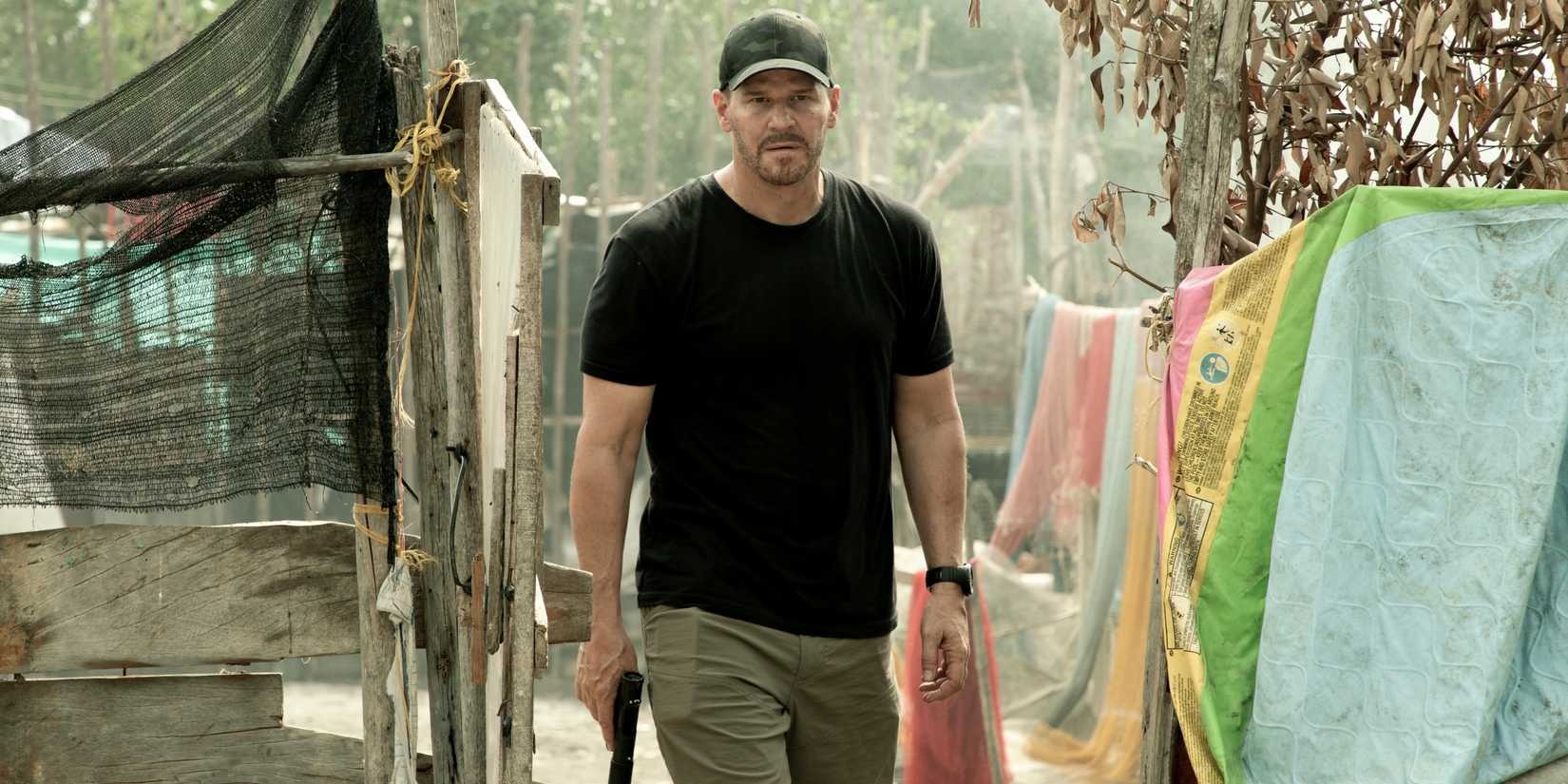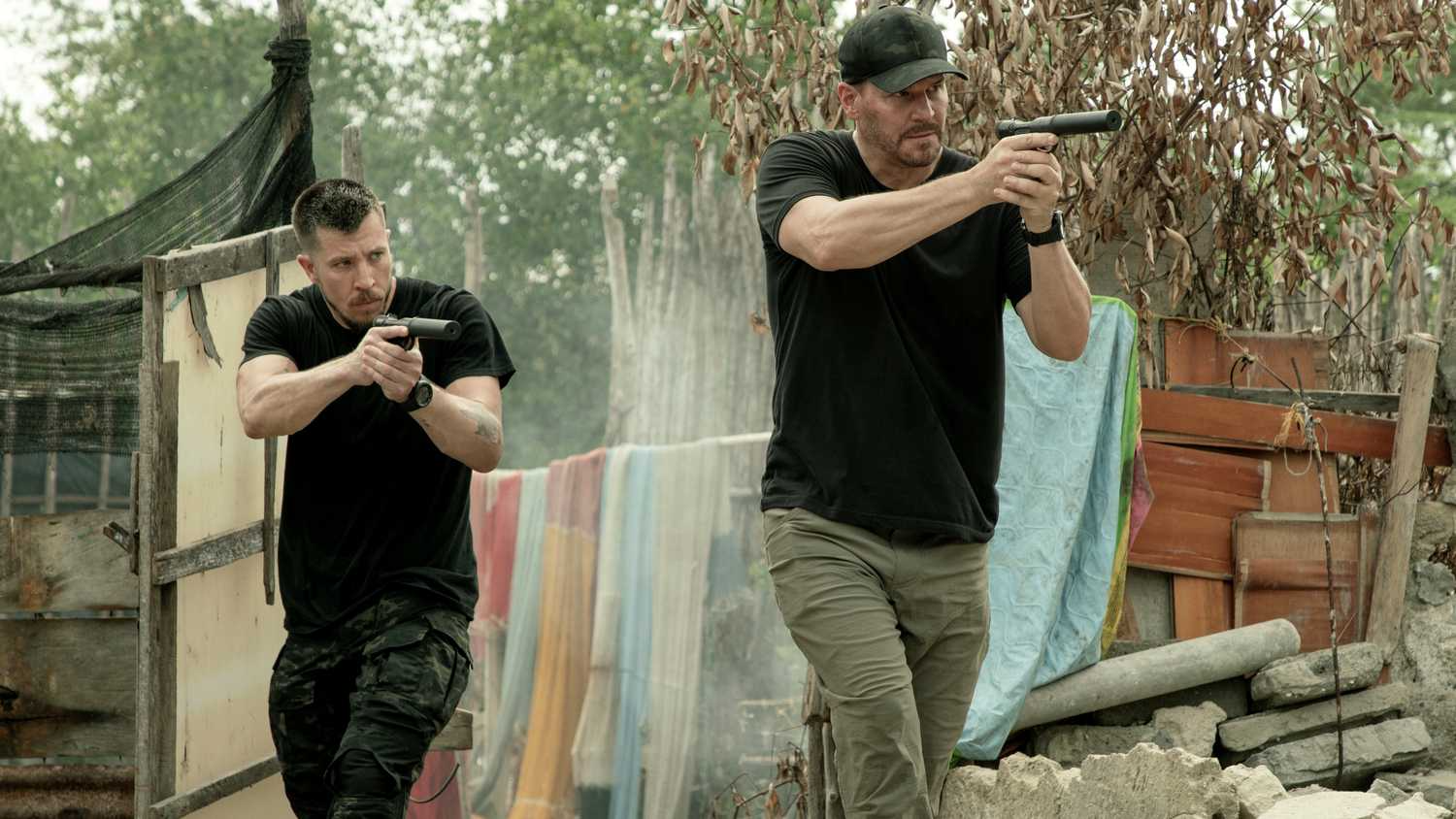
In the final season of the Paramount+ series SEAL Team, Master Chief Special Warfare Operator Jason Hayes (David Boreanaz) and his elite BRAVO unit of Navy SEALs fight their way off the sidelines and back into the field. A traumatic brain injury and a new team member that shook up the dynamic and caused some tension provided distraction that could have proven deadly. When you’re working to execute dangerous, high-stakes missions, you have to have your head in the game, work as a cohesive team, and not let guilt get the better of you, or war just might have the last word.
During this one-on-one interview with Collider, showrunner Spencer Hudnut broke down what it was like to find out late in the game that Season 7 will be their last and how they adjusted for a series finale. He talked about wanting to have closure for the characters, why he brought Drew (Beau Knapp) into this season, the significance of the Ross Curtis (Mac Brandt) storyline, the biggest production challenge with the finale, pulling off the action sequences, how emotional it was to say goodbye, and his wish that he would have been able to do spinoffs. He’s still also trying to figure out what comes next, now that SEAL Team is finished.
‘SEAL Team’s Showrunner Wishes This Weren’t the End for the David Boreanaz Series
Collider: When I spoke to David Boreanaz at the start of the season, he told me that this would have been his last season, even if it wasn’t the show’s last season. When did he have that conversation with you? Had there ever been any conversations about continuing the show beyond him leaving?
SPENCER HUDNUT: The short answer is that he and I did not have that conversation, ever. I found out in November that this will be the last season. I understand why he probably came to that decision on his own. But the truth is, I started breaking Season 7 in January of 2023. The writers showed up in February and March. Leading up to the strike, we had the whole season broken and we probably had about seven scripts in the works. We came back in early October, we basically had nine scripts done, and I was starting to fiddle around with the season finale.
And then, when I was told in early November that was the end of the series, we were five weeks from starting production. I was losing all the writers in five weeks, and we were already locked in to go to Colombia. So, it really gave me only about three acts of the finale to land the plane.
Of course, I was aware that BRAVO Team has been around for a long time. With Season 7, it would be unlikely that everyone would continue forward, so the main characters were already on their journeys of starting to find their off ramps. My goal was to get more seasons. That’s why we introduced the character of Drew. I’ve gotten a lot of messages on social media about, “Why would you introduce a character when you only have 10 episodes left?” Drew was there to be a bridge character, much like Omar, in case the baton needs to get passed to the next generation of BRAVO Team, to really build those guys up as the season progresses, to a point where people are really interested in those guys, in case they take a more prominent role. As much as I never would want to do a SEAL Team episode without David, part of the job is to keep the show going. That was a challenge that I thought we would face, but we’re not.

At the same time, it does feel like this is a world that you could tell more stories in, even if it doesn’t look like this particular show. Have you thought about, talked about, or considered any spinoff with any of these characters?
HUDNUT: Yes, for sure. We, of course, like to entertain and bring an action-fueled show to our audience, but one of the things we did really well was shine a spotlight on areas where we could do better for our men and women in uniform and our veterans. We were talking about spinoffs. If you had asked me a year ago, I would have said there would probably be one or two SEAL Team affiliated shows in the works right now, but for whatever reason, that’s not happening.
Turning the ‘SEAL Team’ Season 7 Ending Into a Series Finale Took Minor Adjustments
Even though you had to eventually adjust the final episode when this became the final season, did you know early on what the basic arc of this season was going to be?
HUDNUT: Honestly, not a ton had to change when that news came down. It’s the seventh season of a television show. I thought the show may have been coming to an end, at the end of Season 4, so I always wanted to leave each season in a place where it felt like we could have closure for our characters, but at the same time, leave room for more story to be told. Between Jason, Ray, Sonny, and Davis, for the most part, I didn’t have them all getting to where they completely got to in this finale, but they were all on the same journeys.
For Jason, that was really using the downtime as a way to start bringing the shame into the back of his head that comes from his first kill. That was always going to be his journey. We had to truncate how far he got. He wasn’t ever gonna get quite as far as he does now, but once we felt like we knew the ending, we thought we should at least get him on a path where he could see the hope and realize that there’s a future beyond operating and that war doesn’t have to have the last word.
The storyline with Ross Curtis (Mac Brandt) was so interesting because it seems like something that makes Jason really reflect on everything. What made you want to do that storyline in this season?
HUDNUT: Jason and all these guys have so many examples of operators who have gotten out and struggled. Part of Ray’s struggle this season is feeling the pressure of everyone thinking he has the answer and he’s found a purpose beyond BRAVO Team and beyond operating. That pressure really builds on him throughout the season.
And for Jason, the fact that he’s so hopeful at the beginning of the season, it felt like, if we could introduce a character whom he sees a lot of himself in and who was saying things like “War has the last word,” and “I’m contaminated by what we’ve done,” and who’s lived the life Jason has, I thought it would be more powerful rather than just citing other examples that we’ve seen in the show. Curtis makes choices, but he’s making an argument that he wasn’t set up to succeed when he got out. It’s a different ending than someone like Swanny, but it’s just as tragic. He’s been let down by the same system that let down Swanny, and that all these guys feel could let them down once they’re out too. Bringing a character like that to life, it feels like this was the time to do it.
Were you always going to have Jason make the decision not to be the one to take Curtis out, and then have Drew be the one to do it?
It is a tall task to bring in a new guy with a team and to bring a character like Drew in. What was it like for you to see how that played out and to see how well he actually fit into everything?

What was the biggest production challenge of pulling off the series finale?
What was the most difficult action sequence to pull off this season?
